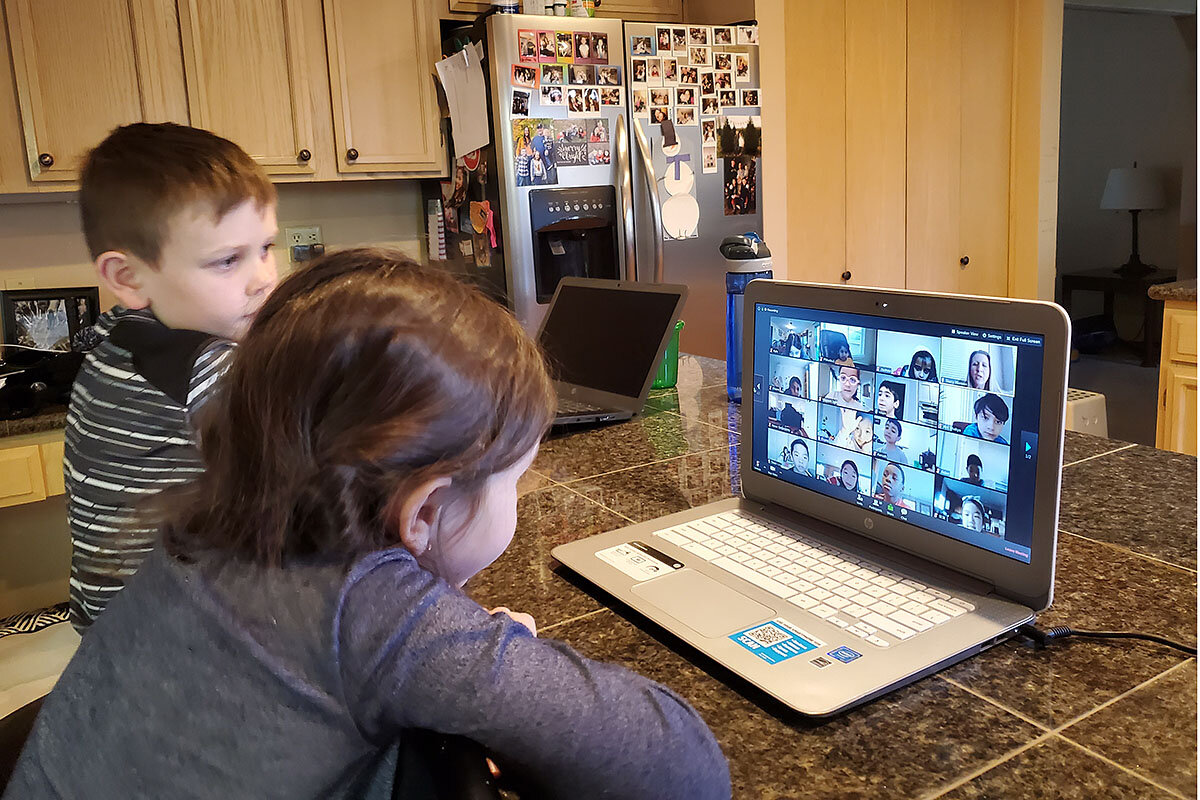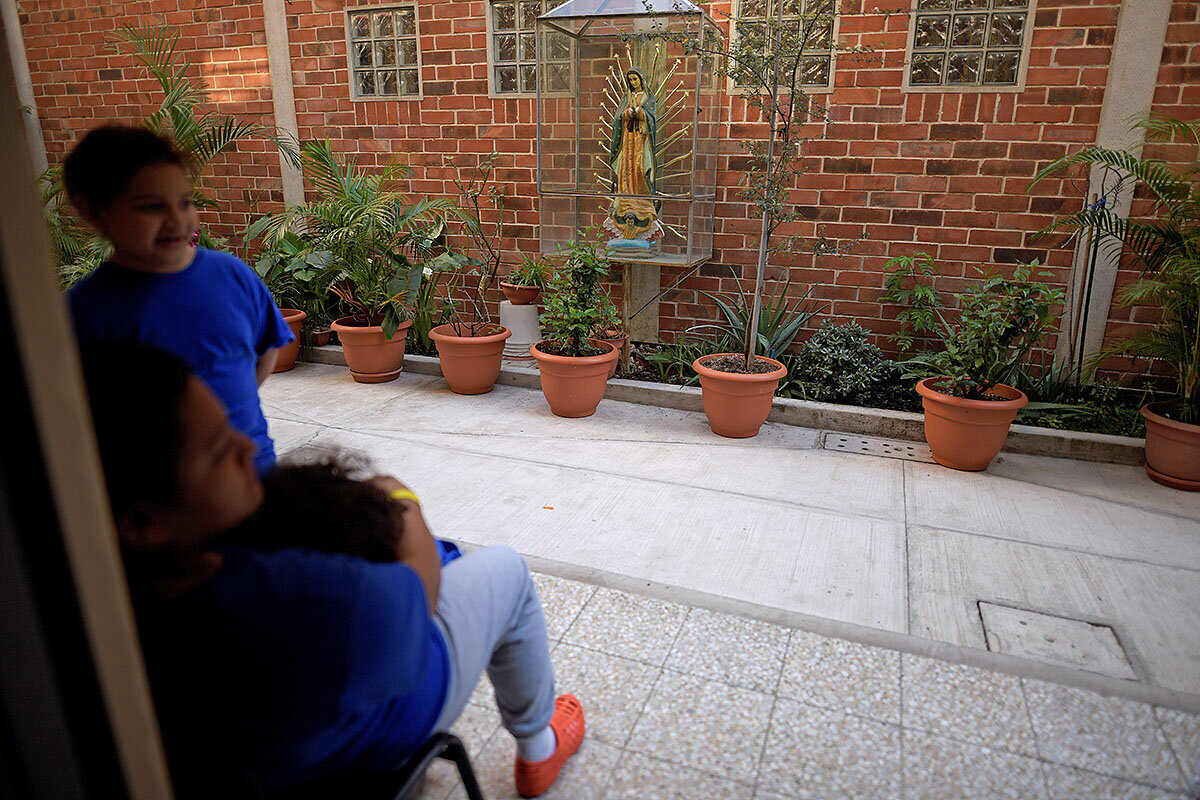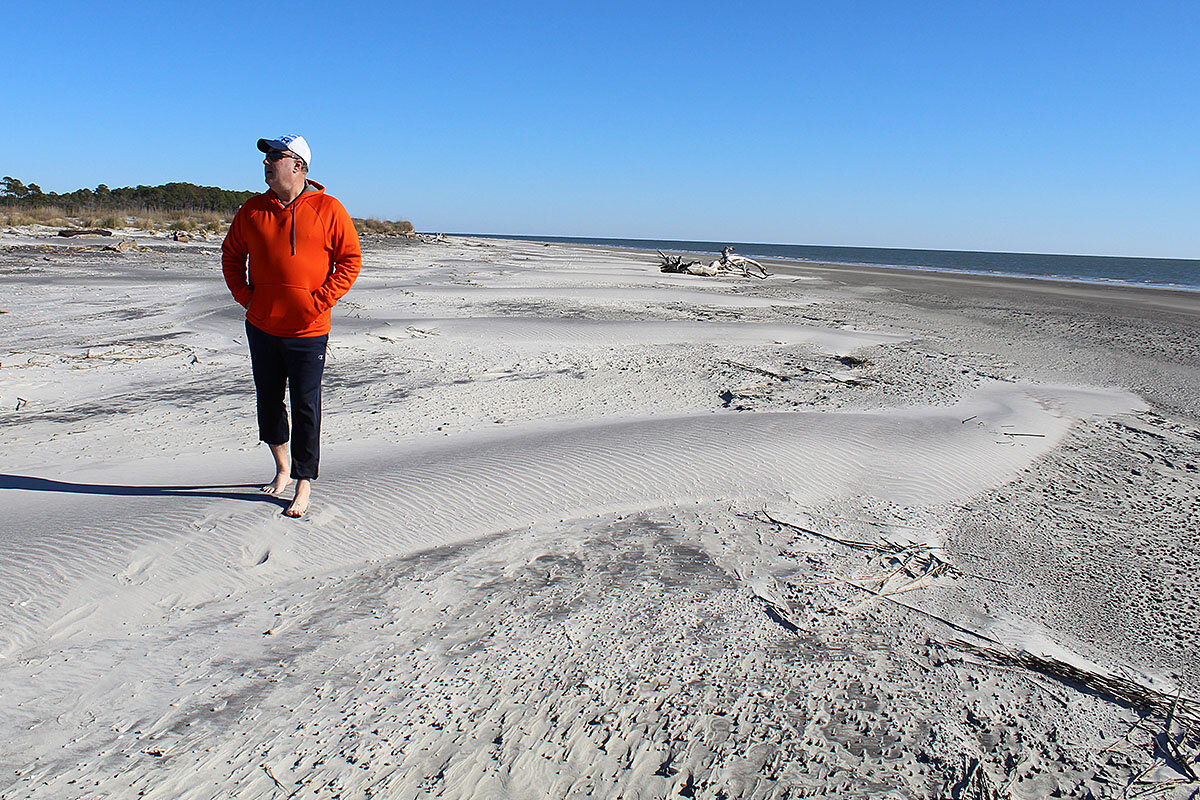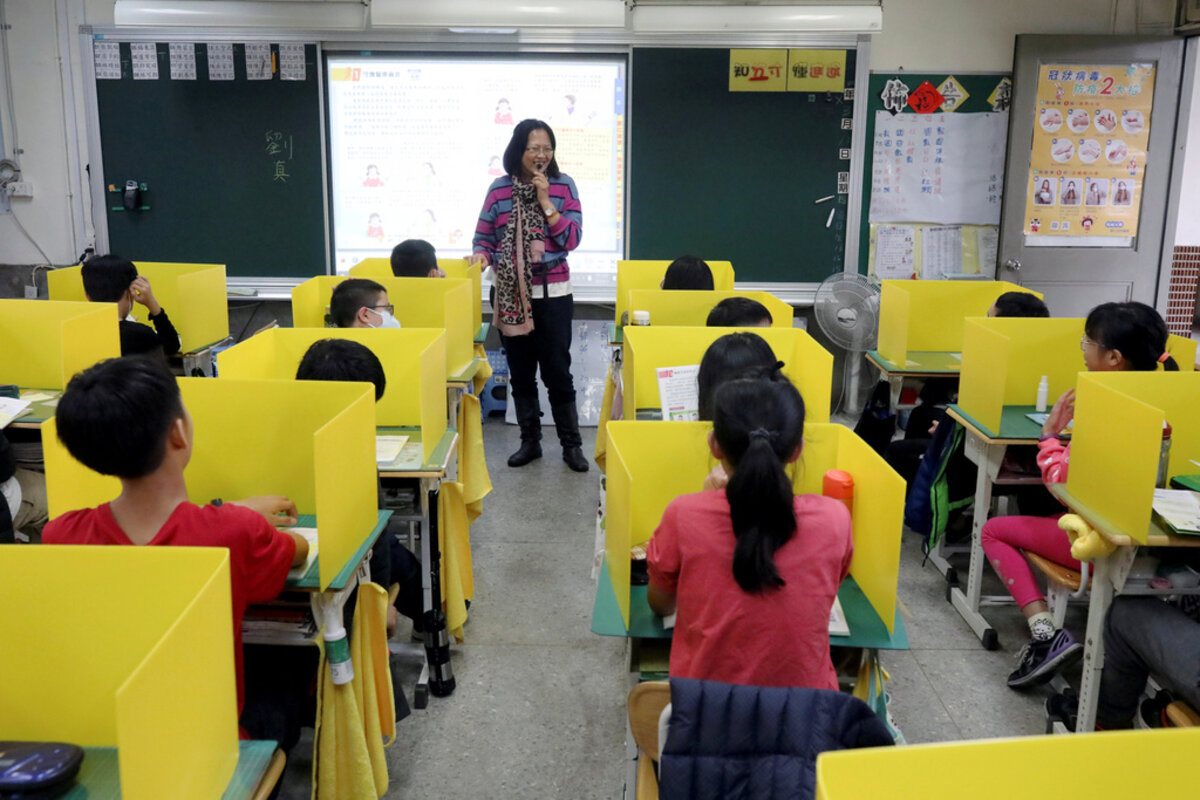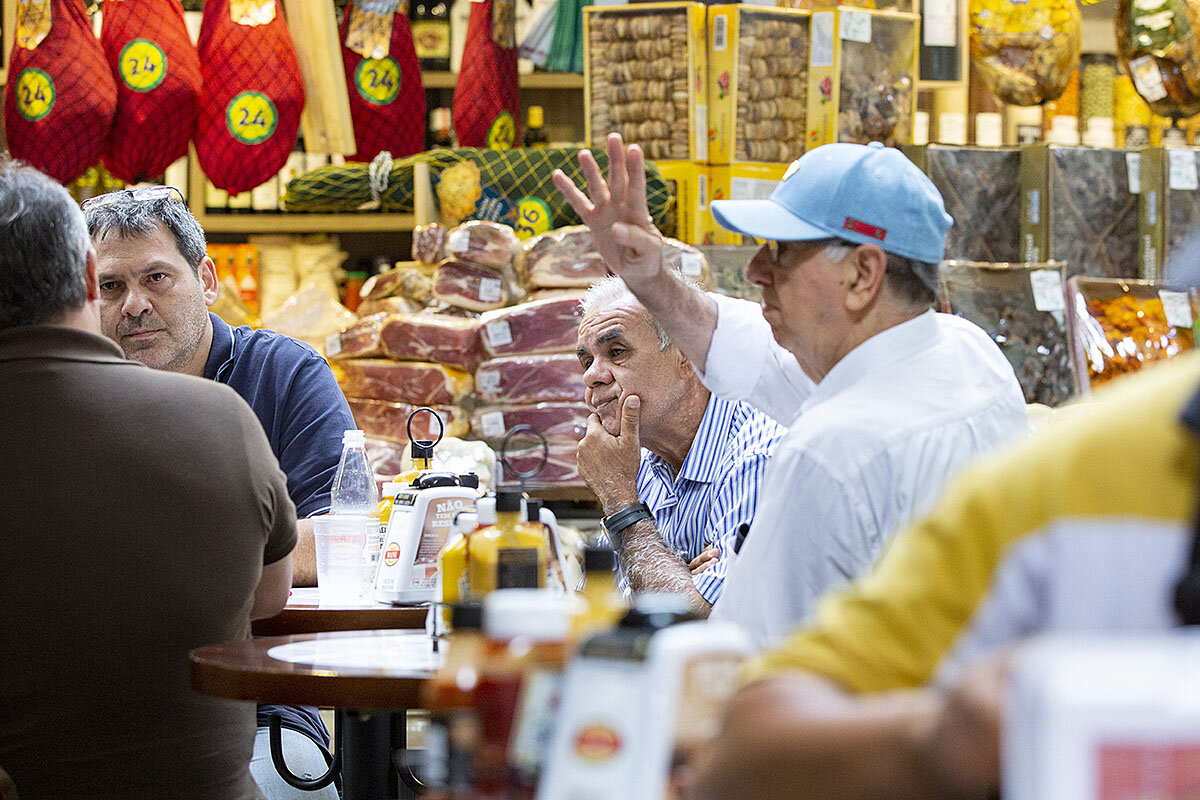How do you create community when you can’t be together? Schools are closed for hundreds of millions of students, but educators, parents, and children are still learning – including how to keep a sense of connection.
Monitor Daily Podcast
- Follow us:
- Apple Podcasts
- Spotify
- RSS Feed
- Download
 Peter Grier
Peter Grier
Today’s issue includes a look at how closing schools for coronavirus containment affects communities, a graphics presentation that puts data about the coronavirus in context, a story on Vladimir Putin’s effort to extend his hold on power, a piece detailing Guatemala’s role in U.S. asylum law, and a report from South Carolina on ecotourism, nature’s coastal rhythms, and racial tensions so deep-rooted they stretch back to the Civil War.
Monitor staffers were chatting Friday morning about possible effects of the coronavirus crisis on an internal message board. One mentioned a phrase that described what they were talking about: “social recalibration.”
Daily life is being upended on an unprecedented scale to help slow COVID-19 down. Offices, schools, and stadiums are closing.
This recalibration is a massive experiment in society adapting new habits. Might it lead to some permanent change?
Take business travel. Some is surely essential. But a rise in teleconferences could show what trips aren’t worth it. What’s the point of flying in, meeting in an airport conference room, and then flying right back out?
Meanwhile, lots of employees are about to get their first extended experience in telecommuting. Where culture emphasizes long office work hours, such as Japan, this could be an eye-opener. In the U.S. it could lead to permanent alteration of traffic patterns in gridlocked cities such as Boston.
Around the world much of higher education is suddenly moving online. This almost certainly will lead to equally sudden advances in the science of virtual education.
Currently these things are happening as society rallies to fight an ominous, imminent threat. But they could lead to emissions-curbing recalibrations that help society fight another ominous threat that moves more slowly: climate change.
“We need to find new values – values of simple experience, of friendship,” Dutch futurist Li Edelkoort said in a provocative article in Quartz last week. “It might just turn the world around for the better.”




